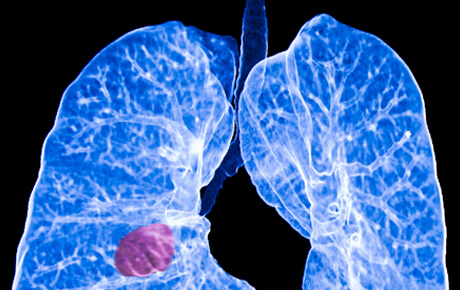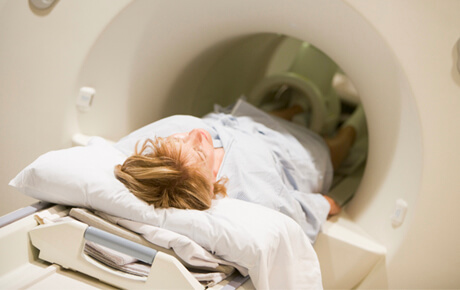

The goal is to save lives. Without a Low Dose CT Lung Screening, lung cancer is not usually found until a person develops symptoms. At that time, the cancer is much harder to treat. Seventy-five percent of lung cancers are detected after a person develops symptoms. If a person has symptoms by the time a lung cancer is discovered, the five-year survival rate can be less than 50%.
According to the US Preventive Services Task Force, adults aged 50-80 years who have a 20 pack-year smoking history and currently smoke or quit smoking in the past 15 years should consider lung cancer screening. A pack-year is calculated by multiplying the number of years a person has smoked by the average number of packs each day they smoked over that time period. For example, if a person has smoked for 20 years and, on average, smoked 2 packs per day, they would have a 40 pack-year history (20 years x 2 packs per day = 40 pack-years).


It is simple and easy — no medications are given and no needles are used. You can even eat before and after the screen. A Radiological Technologist performs a low dose CT scan of your chest. A CT scanner is a computerized X-ray system that generates a 3-D image of the inside of an object. The screening takes approximately 15 minutes.
Radiation Exposure: Low Dose CT Lung Screening uses radiation to create images of your lung. Radiation can increase a person’s risk of cancer. The amount of radiation in a Low Dose CT is small.
False Negatives: No test, including Low Dose CT Lung Screening, is perfect. It is possible you may have a medical condition, including lung cancer, that is not found during your screening. This is called a false negative.
False Positive/Additional Testing: Low Dose CT lung screening very often finds something in the lung that could be cancer but in fact, is not. This is called a false positive. False positive tests can cause anxiety, and, in order to make sure a finding is not cancer, additional tests may be required.
Most insurance companies now cover the Low Dose CT Lung Screening if you meet the criteria — no symptoms and are at high risk based on age and smoking history.
©2022 Copyright | Website Privacy Policy | Digital Marketing by Authority Solutions®